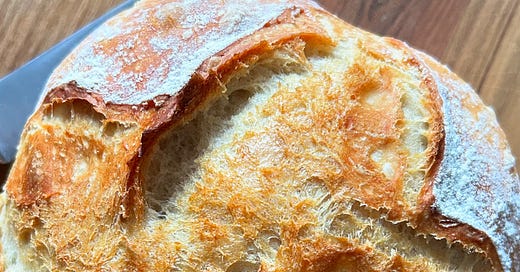This post is part of my ongoing Artisan Bread 101 series, where I take a deep dive into how a handful of essentials each play a key role in achieving bread success. In the last instalment we covered yeast—the ingredient that distinguishes my less labour-intensive artisan breads from traditional sourdough recipes. In today’s newsletter, we’re talking about a pillar in bread making—flour.
Flour is a vital ingredient in baking. Each type and brand can interact differently with moisture and alter the texture and consistency of your dough. Identifying the flour that will produce your desired result is an important step in bread making. When possible, I encourage you to invest in the best-quality flour (or flours) you can, regardless of type or dietary requirements. Unless otherwise specified, I use good quality, hard wheat bread flours in all my artisan bread recipes.
We’ll go through:
What hard wheat bread flour is and why I prefer to use it, including suggested brands
How “Manitoba flour” differs from hard wheat bread flours—they’re not the same
Bread density and how no-knead loaves compare to their kneaded counterparts
The best way to measure flour and the best alternative
Substitutions for hard wheat bread flour
The most common question I receive about flour—Why is my dough so sticky?
If you're catching up, don’t miss the earlier instalments:
You can find my Everyday Artisan Bread recipe here.
Today’s post is for paid subscribers, who also get full access to my archive, in-depth newsletters like this one and exclusive perks, including early access to recipes. If you choose to upgrade to a paid subscription, your support helps keep this newsletter going and allows me to expand my content offerings. Thank you!





